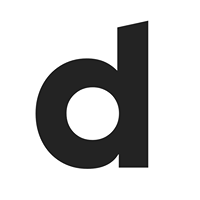Tech Giants Unite Against Online Hate Speech: A New Era of Accountability
January 21, 2025, 4:44 am

Location: United States, California, Menlo Park
Employees: 1001-5000
Founded date: 2010
Total raised: $40M

Location: France, Ile-de-France
Employees: 201-500
Founded date: 2005
Total raised: $59.52M

Location: United States, California, San Bruno
Employees: 10001+
Founded date: 2005
Total raised: $101.45M
In a digital landscape where words can cut deeper than swords, the European Union is tightening the reins on tech giants. Facebook, X (formerly Twitter), YouTube, and other major platforms have pledged to ramp up their efforts against online hate speech. This commitment comes under an updated code of conduct, now woven into the fabric of EU tech regulations. The stakes are high, and the implications are profound.
The European Commission announced this development on January 20, 2025. The message is clear: illegal hate speech has no place in Europe, whether it lurks in the shadows of the internet or parades openly in society. The EU's tech commissioner, Henna Virkkunen, emphasized the importance of this initiative. The updated code is not just a piece of paper; it’s a lifeline for those affected by online vitriol.
This isn’t the first rodeo for these tech companies. They initially signed a voluntary code of conduct back in May 2016. However, the digital world has evolved, and so must the rules governing it. The Digital Services Act (DSA) is now the backdrop against which these companies must operate. This legislation demands a higher standard of accountability. It’s a call to arms for tech giants to take a stand against harmful content.
The revised code introduces several key measures. Companies must now allow not-for-profit organizations with expertise in hate speech to monitor their processes. This transparency is crucial. It’s like letting a referee into a game where the players have been known to bend the rules. The companies are also required to assess at least two-thirds of hate speech notices within 24 hours. Speed is of the essence in this battle.
Automatic detection tools will play a pivotal role in this initiative. Think of them as digital watchdogs, tirelessly scanning the vast expanse of the internet for harmful content. These tools will help reduce the prevalence of hate speech on platforms. Additionally, companies must provide insights into how their recommendation systems work. This transparency will shed light on how illegal content spreads, allowing for more effective countermeasures.
Data is the new oil, and in this case, it’s also a weapon. The companies will present country-level data, breaking down hate speech by categories such as race, religion, and gender identity. This granular approach will help regulators understand the landscape better. It’s akin to mapping out a battlefield before launching an attack.
The tech giants involved in this initiative are a who's who of the digital world. Meta, Google, Microsoft, and others are stepping up to the plate. They understand that the tide of public opinion is shifting. Users are demanding safer online spaces. Ignoring this call could lead to a backlash that no company wants to face.
The implications of this agreement extend beyond Europe. As the EU sets the standard, other regions may follow suit. The ripple effect could reshape how tech companies operate globally. The world is watching, and the pressure is mounting.
Critics, however, remain skeptical. They argue that voluntary codes can be toothless. Without stringent enforcement, these measures may amount to little more than lip service. The challenge lies in ensuring compliance. Regulators must be vigilant. They need to hold companies accountable when they falter.
Moreover, the definition of hate speech can be murky. What one person deems offensive, another may see as free expression. Striking a balance between protecting individuals and preserving freedom of speech is a tightrope walk. The EU’s approach will be closely scrutinized.
As this initiative unfolds, the spotlight will be on the tech giants. They must demonstrate that they can rise to the occasion. The world is tired of empty promises. Users want action, not just words. The time for change is now.
In conclusion, the updated code of conduct represents a significant step forward in the fight against online hate speech. It’s a commitment to accountability and transparency. The tech giants are being called to task, and the EU is leading the charge. This initiative could redefine the digital landscape, making it safer for all. The journey ahead will be challenging, but the stakes are too high to ignore. The battle against hate speech is just beginning, and the world is watching closely.
The European Commission announced this development on January 20, 2025. The message is clear: illegal hate speech has no place in Europe, whether it lurks in the shadows of the internet or parades openly in society. The EU's tech commissioner, Henna Virkkunen, emphasized the importance of this initiative. The updated code is not just a piece of paper; it’s a lifeline for those affected by online vitriol.
This isn’t the first rodeo for these tech companies. They initially signed a voluntary code of conduct back in May 2016. However, the digital world has evolved, and so must the rules governing it. The Digital Services Act (DSA) is now the backdrop against which these companies must operate. This legislation demands a higher standard of accountability. It’s a call to arms for tech giants to take a stand against harmful content.
The revised code introduces several key measures. Companies must now allow not-for-profit organizations with expertise in hate speech to monitor their processes. This transparency is crucial. It’s like letting a referee into a game where the players have been known to bend the rules. The companies are also required to assess at least two-thirds of hate speech notices within 24 hours. Speed is of the essence in this battle.
Automatic detection tools will play a pivotal role in this initiative. Think of them as digital watchdogs, tirelessly scanning the vast expanse of the internet for harmful content. These tools will help reduce the prevalence of hate speech on platforms. Additionally, companies must provide insights into how their recommendation systems work. This transparency will shed light on how illegal content spreads, allowing for more effective countermeasures.
Data is the new oil, and in this case, it’s also a weapon. The companies will present country-level data, breaking down hate speech by categories such as race, religion, and gender identity. This granular approach will help regulators understand the landscape better. It’s akin to mapping out a battlefield before launching an attack.
The tech giants involved in this initiative are a who's who of the digital world. Meta, Google, Microsoft, and others are stepping up to the plate. They understand that the tide of public opinion is shifting. Users are demanding safer online spaces. Ignoring this call could lead to a backlash that no company wants to face.
The implications of this agreement extend beyond Europe. As the EU sets the standard, other regions may follow suit. The ripple effect could reshape how tech companies operate globally. The world is watching, and the pressure is mounting.
Critics, however, remain skeptical. They argue that voluntary codes can be toothless. Without stringent enforcement, these measures may amount to little more than lip service. The challenge lies in ensuring compliance. Regulators must be vigilant. They need to hold companies accountable when they falter.
Moreover, the definition of hate speech can be murky. What one person deems offensive, another may see as free expression. Striking a balance between protecting individuals and preserving freedom of speech is a tightrope walk. The EU’s approach will be closely scrutinized.
As this initiative unfolds, the spotlight will be on the tech giants. They must demonstrate that they can rise to the occasion. The world is tired of empty promises. Users want action, not just words. The time for change is now.
In conclusion, the updated code of conduct represents a significant step forward in the fight against online hate speech. It’s a commitment to accountability and transparency. The tech giants are being called to task, and the EU is leading the charge. This initiative could redefine the digital landscape, making it safer for all. The journey ahead will be challenging, but the stakes are too high to ignore. The battle against hate speech is just beginning, and the world is watching closely.
